Link
When I was preparing to make this playlist, I began to think about incorportaing songs that reminded me of Kennedy’s work almost as if I was doing sound research for a production. But I got stuck. I had trouble trying to translate themes and images I saw in Kennedy’s plays into music. So I decided to go down another path. I began to think about my own layered memories of family and how that might translate into a playlist. I began to think about music my parents loved and would play around the house as a child layered next to music I loved and felt whistful and swirling to me. These two strands twisted together to make this playlist!
-Hanna
0 notes
Link
While putting together a playlist inspired by Kennedy’s work, I found this podcast! This episode focuses on Kennedy and each episode deep dives into a different Black theater artist. I have now started to rotate it in to my typical podcast listening! In addition to this episode, I love the episode on James Ijames and Suzan-Lori Parks!
-Hanna
0 notes
Text
‘The Work of Adrienne Kennedy: Inspiration & Influence’
“With [this festival] we are honoring her as the living legend that she is” --Ryan Rilette & Ed Zakreski, Artistic Director & Managing Director of Round House Theatre
Round House Theatre and the McCarter Theater Center have partnered to produce a 4-month-long virtual play festival of Adrienne Kennedy’s work. The festival includes productions of He Brought Her Heart Back in a Box directed by Nicole A. Watson; Sleep Deprivation Chamber by Kennedy and her son Adam P. Kennedy, directed by Raymond O. Caldwell; Ohio State Murders directed by Valerie Curtis-Newton; and Kennedy’s new play Etta and Ella on the Upper West Side directed by Timothy Douglas, with it’s world premier December 12th.
Accompanied with each production, there are four talks and panels that are free and available to watch on youtube HERE. Ranging from a conversation around ‘Acting Adrienne Kennedy’ to a panel on ‘The Black Avant Garde,’ these panels are valuable discussions to ground the festival while amplifying other playwrights, actors, critics and artist of color that are engaging with Kennedy’s work.
The introduction to each production is a kind of scrapbook-collage of photos from productions, scripts, photos of New York, programs from productions, newspaper clippings, and even a copy of Jane Eyre - one of her favorite books.
This festival honors a writer who has been overlooked; granting space to examine her body of work, process, and legacy. As well as offering space and time for black artists and other artists of color to work and speak to Kennedy. We are very excited that this project has overlapped with this festival. The goals of our scrapbook and this festival are not only parallel but overlap. We created this space to uplift Kennedy’s voice as a thinker, writer, and human; this festival seeks to do the same. We cannot encourage you enough to engage with the festival and contribute to this scrapbook.
All four of the productions will be available to stream from December 12th through February 21st 2021, with three productions available now. Festival passes are available for purchase as well as tickets to individual productions: Link. Free tickets and passes are available to students: Link.
0 notes
Text
This is inspired by Nicole A. Watson’s production of He Brought Her Heart Back in a Box for the Round House Theatre and McCarter Theatre Center’s Adrienne Kennedy festival. Specifically, by the layered photos, videos, props, and scenic models used in the production. It’s also inspired by Kennedy’s style of writing, influenced by dreams, memory, and family. It’s inspired by a dream I had this summer during quarantine and by my family. I suppose this is a script of sorts. I wrote and drew it in my journal - Coco
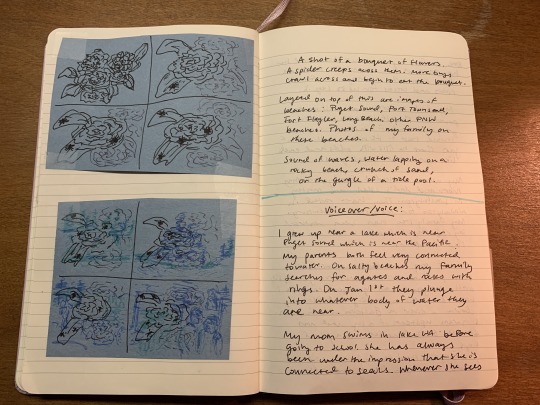
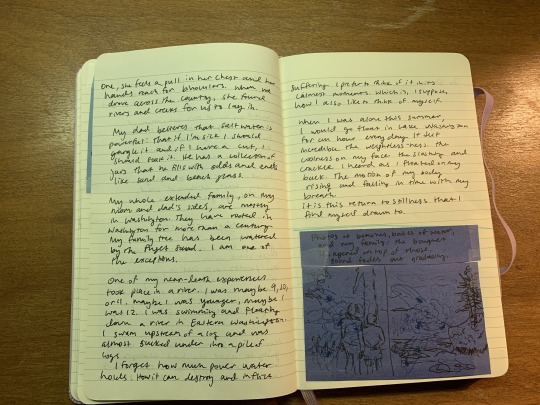
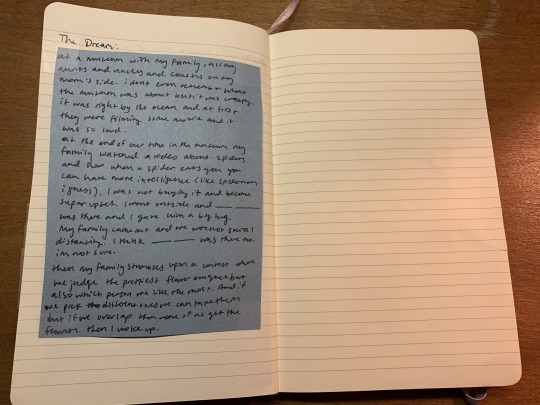
0 notes
Photo
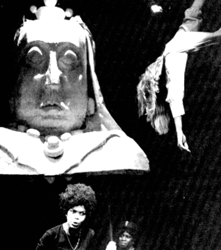
A scene from the 1968 Paris production of Funnyhouse of a Negro, Link.
0 notes
Photo
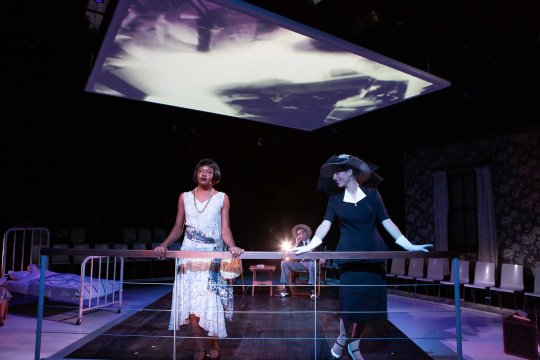
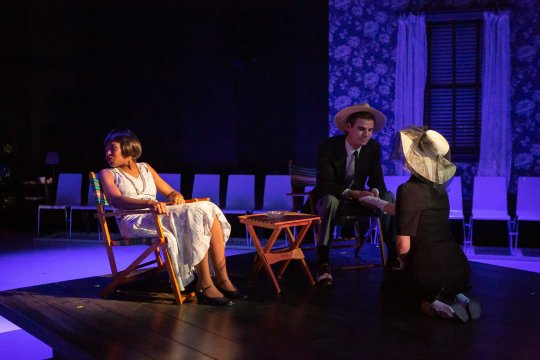
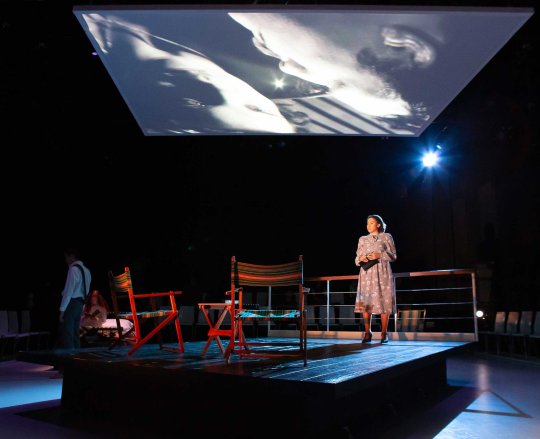
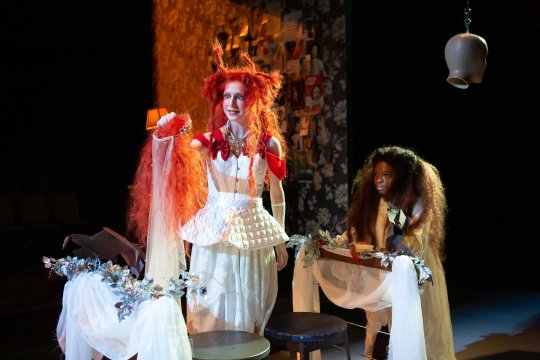
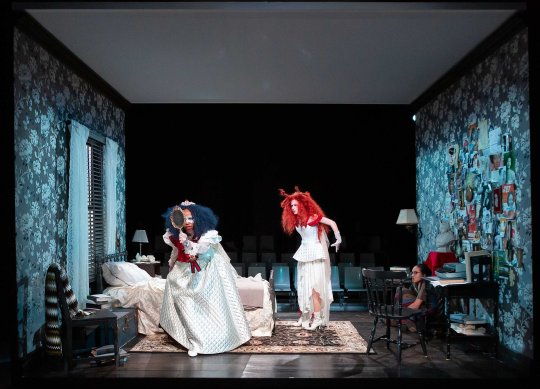
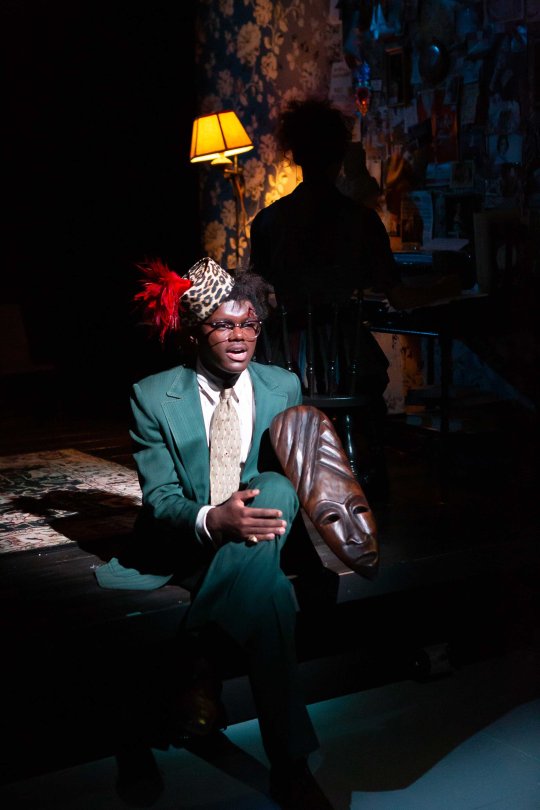
Kennedy’s work, due to the length of her plays, are often produced together. Take Barnard College’s 2019 productions of A Movie Star has to Star in Black and White (1976) and Funnyhouse of a Negro (1964) directed by Alice Reagan, pictured here. What combination of Kennedy’s work are you interested in seeing?
Photos by Hunter Canning for Barnard College, Link.
2 notes
·
View notes
Photo
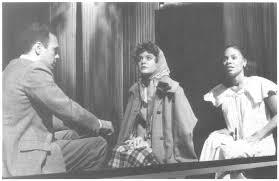
A Movie Star has to Star in Black and White (1976) directed by Joseph Chaikin at the Signature Theatre Company’s production. Photo by Susan Johann, Link.
0 notes
Photo
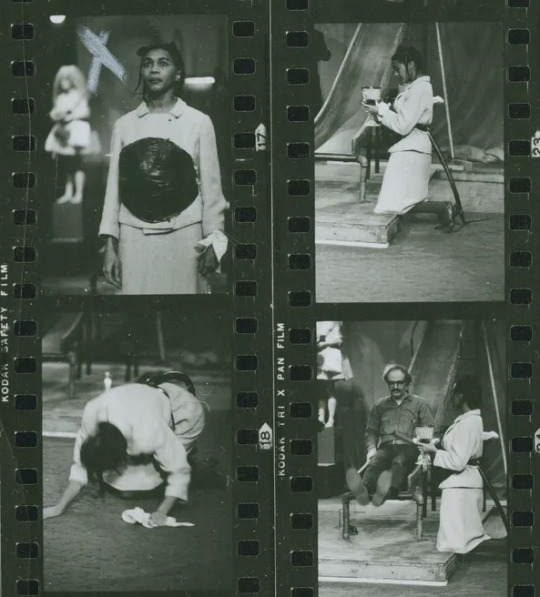
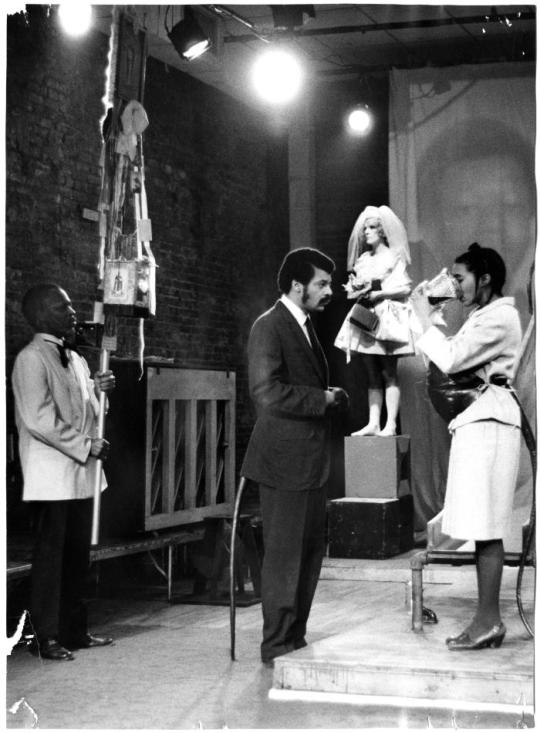
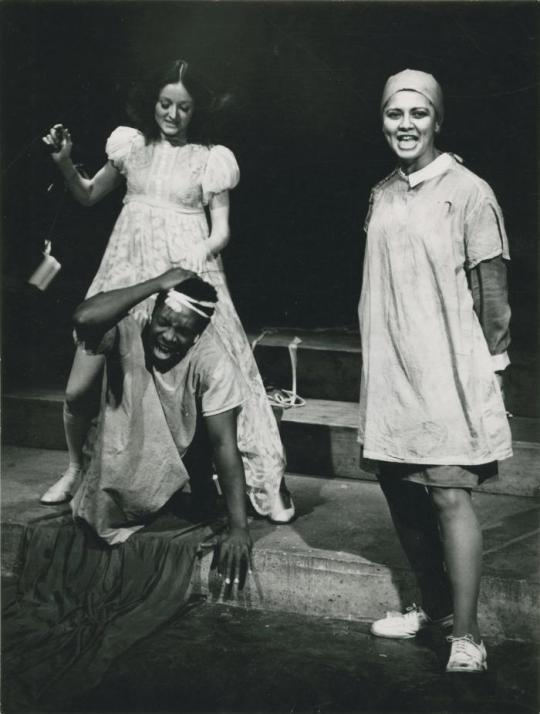
A Rat’s Mass (1967) from the La MaMa’s production in 1969. Photos by Amnon Ben Nomis, Link.
1 note
·
View note
Photo
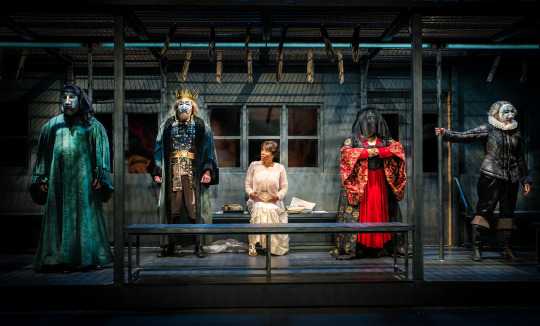
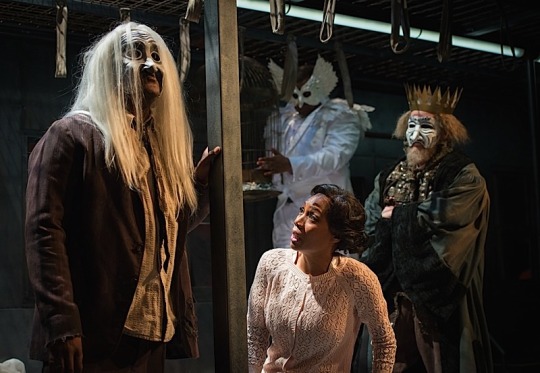
The Owl Answers (1965) directed by Talvin Wilks at the Penumbra Theatre in 2016. Photos by Allen Weeks, Link.
4 notes
·
View notes
Photo
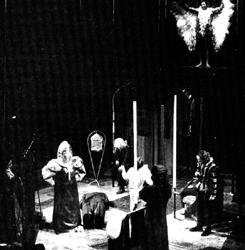
The 1969 New York Shakespeare Festival production of The Owl Answers in Cities in Bezique, Link.
0 notes
Text
Early Influences
Some quotes from Kennedy on her influences and popular media / culture that shaped her:
Writers and Literature:
“So it’s really the British writers that I was influenced by: Charles Dickens, the Brontës. When we were in junior high school, we read all those people. Wordsworth, Shelley. For better or for worse, those are the people that I saw as writers” (Kennedy, American Theatre).
“I tend to like the same people I liked when I was 20: Arthur Miller, Tennessee Williams, O’Neill, in terms of Americans. I like Pinter a lot” (Kennedy, Village Voice).
“Hamlet is my favorite play. Jane Eyre is my favorite novel. It’s those childhood things. It’s childhood” (Kennedy, American Theatre).
“I fell in love with the theatre when I was 16 and I saw The Glass Menagerie. Tennessee Williams still remains very, very important to me. Lorca is my favorite playwright, really—Poet in New York” (Kennedy, American Theatre).
Film:
“I’m still fascinated with the people I loved when I was 20. I’m still trying to solve the mystery of Brando, Montgomery Clift, Bette Davis, all those people I liked then...People like Bette Davis, Barbara Stanwyck, Joan Crawford—those people actually gave me an idea of what women were supposed to be like” (Kennedy, Village Voice).
“Hitchcock is very important to me. Vertigo, of course, is my favorite, but I like the others also. Strangers on a Train…I learned so much from those movies. Because when you’re really young—you’re like 11, 12—you’re really like an empty palette. And these things are so powerful. I can remember seeing Gaslight when I was 12 years old...But all those movies, like The Letter, Dark Victory—Bette Davis movies are very important to me...Now, Voyager is one of my favorite movies of all time. And Mildred Pierce. Those movies, they gave me hope” (Kennedy, American Theatre).
Music:
“And I like pop culture—music, pop songs. I’m a kid of the radio, you know? And I still have my radio” (Kennedy, American Theatre).
Kennedy, Adrienne quoted by Alexis Soloski. “Adrienne Kennedy Talks About Her Life.” The Village Voice. 29 Jan. 2008, Link.
Kennedy, Adrienne quoted by Jacobs Jenkins, Branden. “Unraveling the Landscape: A Conversation With Adrienne Kennedy.” American Theatre. Posted 4 September 2019. Link.
0 notes
Photo
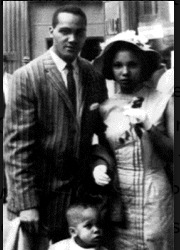
Adrienne and Joe Kennedy with their son Adam at Rockefeller Center, Easter Sunday, 1956, Link.
0 notes
Text
The Alexander Plays
Four of Kennedy’s plays--She Talks to Beethoven (1989), The Ohio State Murders (1992), The Film Club (A Monologue) (1992) and The Dramatic Circle (1992)--all have something in common: Suzanne Alexander.
The four plays of this latest collection are trademark Kennedy: short and powerful. Each relies on different aspects of the life of the character Suzanne Alexander and periods she has spent in Ohio, Ghana and English. Kennedy has found a voice no less powerful than that of her early works though it is markedly less frenetic. In the scathing calmness of this collection reside riveting tales of racism, motherhood, and love” (King, 406).
Alexander is an autobiographical character, a sort of alter ego for Kennedy. Kennedy draws upon her own life when writing all of her characters, but Suzanne Alexander is distinctly autobiographical:
BARNETT: Nonfiction? I'm confused. Nonfiction? Suzanne Alexander is fictional.
KENNEDY: Well it's a blend of fiction and nonfiction. I really love doing that, obviously. It's a blend. It's a blend of part-truth and part-fiction. It's so obvious that I love to do that. I love to try to do that ("Interview”).
Kennedy enjoys writing from her life but does not care much for continuity: “I'm not trying to always be truthful. I'm playing around with the truth a lot, to try to get to something that maybe I've never really reached“ ("Interview”).
And like both Kennedy and Suzanne Alexander experience theater in similar ways: plays offer “moments of intense presence, or complete distraction, [Suzanne] watches plays much as she watches and records her own nightmares, memories, and daydreams” (Spencer).
This fragmentation of self once again builds upon Kennedy’s body of work that deals in ‘nightmares, memories, and daydreams.’
Barnett, Claudia and Kennedy, Adrienne. “Interview.” TDR: The Drama Review. The MIT Press. Volume 49, Number 3 (T 187), Fall 2005. Link.
King, Nicole R. “Reviewed Works: The Alexander Plays by Adrienne Kennedy; Intersecting Boundaries: The Theatre of Adrienne Kennedy by Paul Bryant-Jackson, Lois More Overbeck.” Theatre Journal. The John Hopkins University Press. Vol. 45, No. 3 (Oct., 1993), pp. 406-408 (3 pages), Link.
Spencer, Jenny. “Emancipated Spectatorship in Adrienne Kennedy's Plays.” Modern Drama. University of Toronto Press, Volume 55, Number 1, Spring 2012, Link.
0 notes
Text
The Film Club (1992) & The Dramatic Circle (1992)
The Dramatic Circle is that last play in the Alexander Play cycle which all contain the character Suzanne Alexander--Kennedy’s alter ego. Circle “is the dramatization of events of the events in the monologue The Film Club” (1992). And shows “Alexander in London, separated from her husband David, missing Africa” (King, 407).
Kennedy’s classic motifs of dreams begin the play: “ALICE: Suzanne had been delirious the night before, sleepwalking, speaking lines from the historical letters of Napoleon and Josephine. Her breathlessness had become worse” (Kennedy, 83).
And, much like her other work, including She Talks to Beethoven and Funnyhouse of a Negro, Kennedy references many other writers, thinkers, and artists. In Circle she mentions of Frantz Fanon, Napoleon, Josephine, Dracula, Sylvia Plath, among others. This inspiration to use and reference other writers creates a fascinating map of intertextual conversations.
Kennedy, Adrienne. “The Dramatic Circle.” The Alexander Plays. University of Minnesota Press. 1992. pp. 82-107.
King, Nicole R. “Reviewed Works: The Alexander Plays by Adrienne Kennedy; Intersecting Boundaries: The Theatre of Adrienne Kennedy by Paul Bryant-Jackson, Lois More Overbeck.” Theatre Journal. The John Hopkins University Press. Vol. 45, No. 3 (Oct., 1993), pp. 406-408 (3 pages), Link.
0 notes
Quote
I do think about the past a lot. I don’t know why, but I’ve been compelled to work with my mother’s scrapbook
Adrienne Kennedy, American Theatre interview with Branden Jacobs Jenkins, 2019.
0 notes
Text
“She Who Is: Adrienne Kennedy and the Drama of Difference” at Artists Space, New York
“The exhibition features rarely-seen archival materials: original manuscripts of Kennedy’s plays, as well as personal correspondences, drawings, production photographs, theater props, and rare video documentation of her live work” - Mousse Magazine, 2020, link
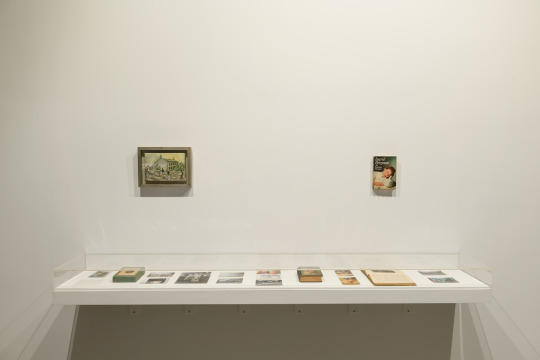
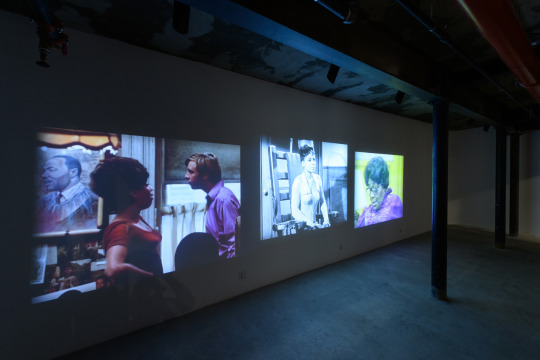
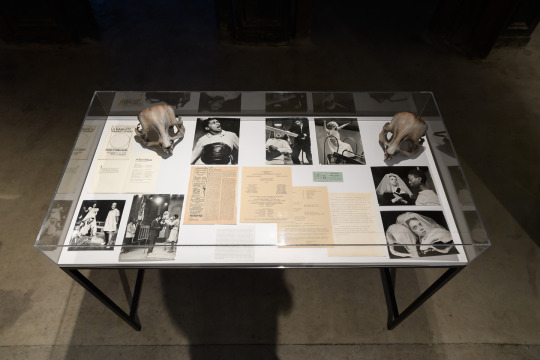
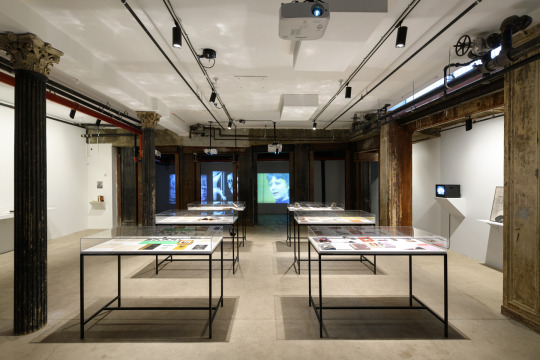
Photos by Filip Wolack
1 note
·
View note
Quote
Every character I write is based on someone. All the characters I write are a blend of people I know and myself.
Adrienne Kennedy, “Interview.” TDR: The Drama Review. The MIT Press. Volume 49, Number 3 (T 187), Fall 2005. Link.
1 note
·
View note